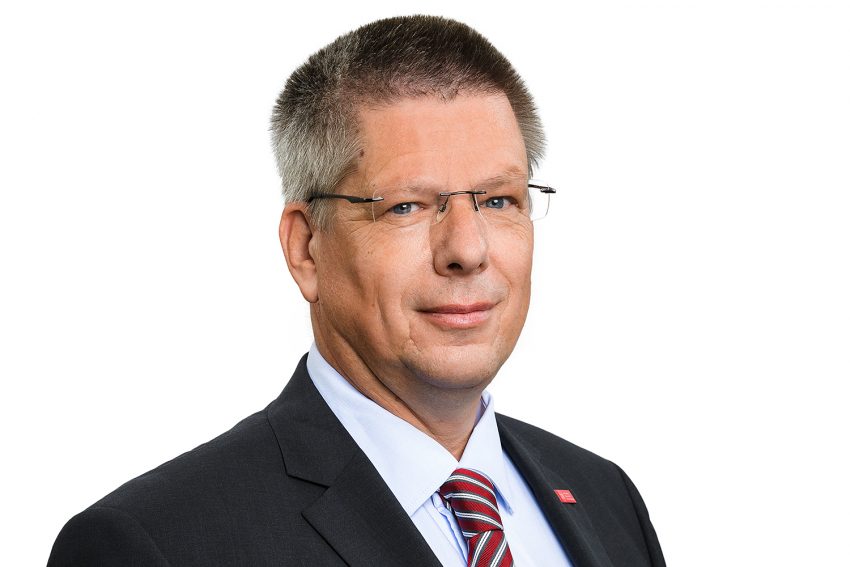It’s the heads that matter! Questions for Vice President Professor Peter Hecker: How do we support young scientists?

Professor Peter Hecker, Vice President for Research and Early Career Scientists. Picture credits:
Marc Stantien/ TU Braunschweig
“We Move People Towards Understanding Future Challenges” and “We Move Excellent People to Braunschweig” are two goals of the TU Braunschweig’s excellence strategy. The researchers at Carolo-Wilhelmina have both goals in mind. For them, a personnel development concept was developed and adopted at the TU Braunschweig in 2018.
Stephan Nachtigall and János Krüger spoke with Professor Peter Hecker, Vice President for Research and Early Career Scientists, about the concept’s key points and what scientists should know about it.
Professor Hecker, as Vice President for Research and Early Career Scientists, you have initiated the personnel development concept for scientific personnel. What does it offer and who is it aimed at?
First of all, I would like to emphasise that the development was a great team effort, which was
developed on the initiative of the Executive Board and the Senate in a participatory process. The TU Braunschweig highly values the sponsorship of young scientists. After all, research at our university is always based on the acquisition of new qualifications at various career levels. The personnel development concept deliberately looks beyond professional aptitude. It contributes to the acquisition of important competences and qualifications in order to reach the next career level within and outside the TU Braunschweig.
Numerous support and promotion offers have been established for the various target groups and are enjoying strong demand and popularity. Now it was time to bring all these offers together in a uniform concept and thus make transparent and predictable career paths possible. In addition, a holistic personnel development concept allows existing offers to be compared and better coordinated. It is also a tool for us to expand and further develop, as we have already done for the career path “Tenure Track Professorship”.
So the personnel development concept is aimed primarily at young scientists?
The personnel development concept is aimed at the entire scientific staff of the TU Braunschweig and is geared to the respective needs. At the same time, a personnel development concept for employees in technology and administration was developed.
We would also like to explicitly address experienced scientists and make offers for their individual advancement and development. For example, the “Science and Leadership Forum” is aimed at professors in positions of responsibility, and coaching sessions for managers also open up further individual training options for experienced researchers. Nevertheless, junior researchers are the largest group in terms of numbers and are naturally the group with the greatest need for support. The determining transitions between the career phases are always subject to a competition and selection process. It is not always easy to make the right decisions for one’s own career. In addition to individual support in the institutes and research units, we want to create a framework within in which young scientists are provided with the best possible level of support on an independent career path and thus improve transparency and predictability.
What is the idea behind the personnel development concept?
Responsibility and clarity are two important principles at the TU Braunschweig that have been incorporated into the creation of the personnel development concept. There was great agreement that we want to support our young scientists in the best possible way and at the same time promote independence. This means, for example, that a doctorate is a highly independent project. It requires not only passion for the subject but also discipline and organization. Our goal is not only to optimize the conditions, but also to impart the necessary competencies.
Additionally, we assume that a scientific career means completing various stations, including international ones. These can be non-university research institutions or positions outside science. Furthermore, in line with our internationalization strategy, we have designed measures that allow female scientists, for example, to spend time abroad and at the same time have a safe return option. I am particularly happy that these considerations have already been incorporated into the excellence strategy of the TU Braunschweig and further developed there.
What long-term effects does the concept promise?
As the academic centre of the Research Region, the TU Braunschweig leading the competition for the brightest minds – especially internationally. The personnel development concept therefore also increases our attractiveness as an employer. We also know that the different paths, from the R1 to the R4 phase, also mean a selection of the best. Not everyone will be able to pursue their individual career path within the TU Braunschweig or the scientific community.
Nonetheless, these are very well educated people, most of whom have good or very good chances on the job market. That is why we want to prepare young scientists for all options with a transparent and permissive career system. Because every one of us, whether here at the university or one of the numerous non-university research institutions, in industry, business or the public sector, will always be associated with the TU Braunschweig.
